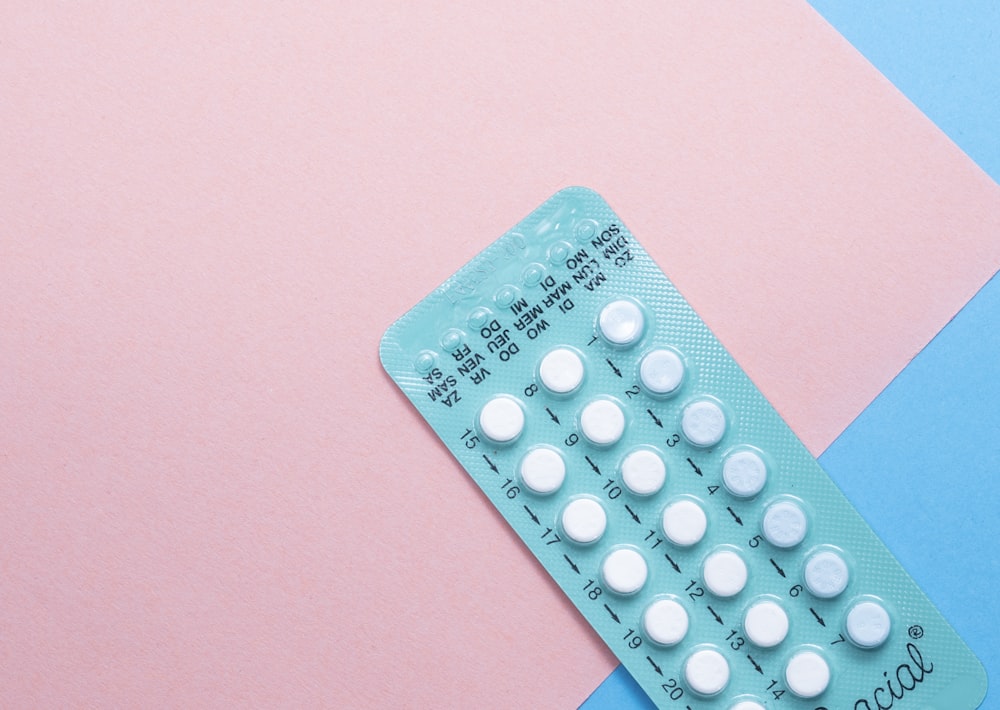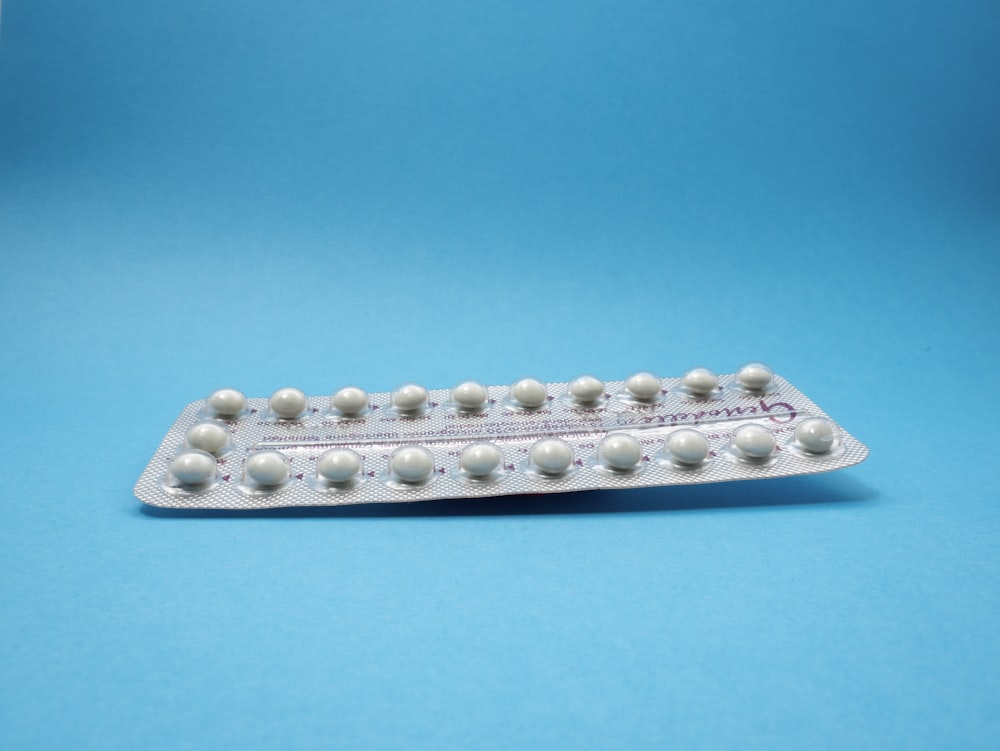
What Contraceptive Pill Is Right for You? – A Beginner’s Guide to Birth Control
To be honest with you, there is no such thing as the perfect birth-control method but there’s certainly a difference between the two types of pills which can make your experience a whole lot easier once you understand.
There is so much conflicting medical advice floating around, ever-advancing research and personal experiences of those who are taking it, which means the conversations surrounding the contraceptive pill can feel like a massive minefield of information to sift through. Yes, the contraceptive pill (that was developed in the 1950s) has changed the lives, freedom and health of so many women globally and empowering them to make their own decisions about pregnancy and sex, whilst also aiding in other health concerns – being painful menstrual cycles, acne or heavy monthly bleeding – but the main question for so many women is, “where such I start, to pick a pill that is right for me?”. Well, the truth is, there is no such thing as the perfect pill. So let me break it down for you…
When we usually talk about ‘the pill’, we tend to speak about it as one thing but it is important to note that there are two types of contraceptive pill – A combined pill and a Progestogen-only pill. Both pills must be prescribed by a doctor, however, you can also purchase a desogestrel progestogen-only pill in pharmacies without a prescription, following a consultation with a pharmacist.

Progestogen-Only Pill
This type of pill can also be known as; the mini-pill or POP and it contains a synthetic version of the hormone progesterone which alters cervical mucus to make it a lot harder for the sperm to travel to meet an egg. Some of the progestogen-only pills contain desogestrel, which works to prevent ovulation which means no egg is released for sperm to fertilise.
POP is often the most popular choice for people who might find it harder to remember to stop and restart taking the medication. Also if you are someone who can’t take contraception that contains oestrogen then this is a useful alternative. POP is suitable for people of all ages, including if you are over 35 years old, but it must be taken at the same time each day – if you take it 3 hours after your scheduled time then it might mean it’s ineffective. Many people who use POP find that their periods stop altogether which can be a huge advantage to those who experience painful periods or other difficult symptoms when menstruating and simply make things like; swimming, wearing whatever you feel the most attracted to and sexual spontaneity.
The advantages:
- The pill can be taken by people who are over 35 years old and who smoke.
- You can start taking the mini-pill straight after childbirth, abortion or miscarriage.
- The mini-pill can be taken whilst your are breastfeeding.
- There are less risk of you developing blood cots unlike the combined pill; which is more associated with higher risk.
- If the pill is taken correctly, then it’s more than 99% effective; which means fewer than 1 in 100 who uses the progestogen-only pill as contraception, will get pregnant in 1 year. But with the ‘typical use’ of progestogen-only – the way it’s often taken by a lot of women in ‘real life’, it’s only about 91% effective.
The disadvantages:
- Women who have had breast cancer, or who currently has it, are not advised to take the progestogen-only pill, and similarly if you have arterial disease, heart disease, or have had a stroke then it’s not advised to use the POP.
- Some of women who take it, develop more frequent or irregular bleeding whilst taking the mini-pill.
- Some users might experience headaches, acne and breast tenderness, but these sympotms generallt get better within the first few months of using the pill.
The Combined Pill
The combined pill contains a synthetic version of the hormones progesterone and oestrogen (ordinarily produced in the ovaries) and works to prevent ovulation from occurring. The form of contraception is 99.7% effective, but only if taken correctly, which makes it a great choice for those who are looking to enjoy sex with minimal risk of getting pregnant. The type of pill is generally taken every day for 21 days of your cycle, followed by a 7-day break during which time you might experience a withdrawal bleed-spoiler, contrary to the popular belief that this isn’t a normal period.
But you might be surprised to know there aren’t any health benefits from taking the 7-day break once advised by doctors, and patients can take a break to back doses without worry. There’s no buildup of menstrual blood, so whether you don’t take a break or you have the 7-day break and experience the withdrawal bleeding, someone who follows the 21 days on, 7 days off cycle doesn’t indicate that someone isn’t pregnant. The pill can only become less effective if you don’t take it more than 24hrs apart, vomit within 2 hours of a dose or have to serve diarrhoea that lasts for more than 24hrs; this is very important to remember!
The advantages:
- This type of birth-control pill can lead to lighter ‘periods‘ aka withdrawal bleeds if the 7 day break is taken, which can be more comfortable and convenient.
- Skin conditions such as acne can be improved.
- Improvement or absence of PMS (premenstural sysndrome) which can cause uncomfortabke symptons and mood changes in the days before.
The disadvantages:
- If you suffer from migraines then you are advised to use another method of contraception because of the higher risk of blood clots.
- The combined pill has been often be linked to an increased feeling of depression, however this can vary from person-to-person and there is something that should be discussed with a doctor if you feel concerned about anything.
- This type of pill isn’t suitable for people who are over the age of 35 who smoke.
- The combined pill has been linked to change in sexual desire and libido.
What is Worth Noting:
Remember you might not be protected from pregnancy if you:
- Are you taken any other medication that could affect the pill absorption (some anti-epilepsy medications).
- Is this you first time or you haven’t yet taken seven hormone pill in a row.

How to know what pill is right for you?
For some, finding the right type of pill can happen with ease whilst for others, it can take time and lots of trials and errors to find what works the best – whether that’s the pill, coil, implant, condoms or other forms of contraception. The most important thing to remember is that whilst the contraceptive pill works to prevent pregnancy, it doesn’t protect you from STIs and so a barrier method such as a condom is always advisable.
Deciding between the two different types of the contraceptive pill, you must discuss with your doctor any ongoing health conditions that you are currently experiencing or any past health conditions; as this can undoubtedly impact which pill is the safest option for you. Another factor that should be considered includes: if you are someone who prefers a much more structured day and routine and can remember to take a pill at the same time every day, are you a smoker, can you take or not take oestrogen or do you prefer to experience ‘periods‘ or not. The decision comes down to personal choice, plus the benefits of the pill that you take daily can mean you can stop taking it at any point – this may help you to feel more in control of your health and symptoms, in comparison to alternatives like the coil; which must be removed by a professional.
Knowledge is powerful…
It’s worth knowing that both hormonal pills are linked to a small but significant increase risk of breast cancer and cervical cancer. But at the end of the day, contraception is an incredible and personal choice and whilst the pill carriers risks, it doesn’t mean that so many other alternatives don’t too. If you are concerned about anything – side effects or struggling to make a call about which option is the best for you- then make sure you speak to either your doctor or a healthcare professional, to help you to work out what works best for your body. Empowerment = having the power to decide for yourself!




